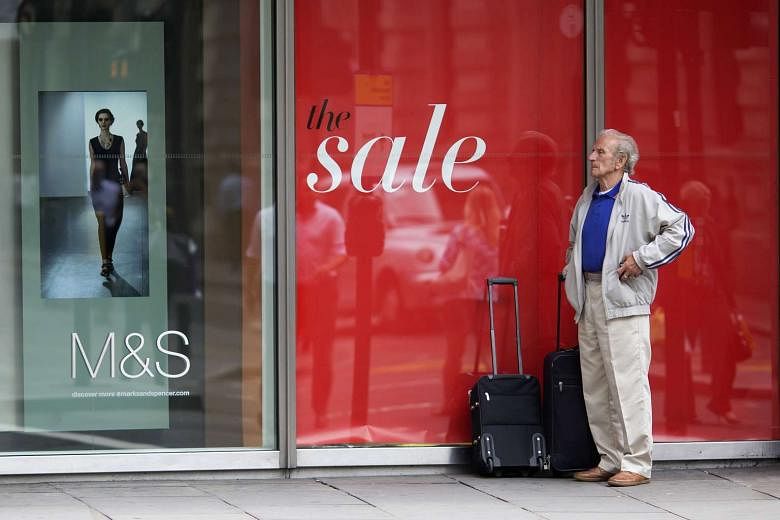LONDON (REUTERS) - Some of Britain's biggest firms are failing to properly check their supply chains for exposure to modern-day slavery despite tougher laws and a government-led crackdown on human trafficking, a monitoring group said on Monday.
Just two out of 27 FTSE 100 companies - firms with high market capitalisation - delivered "rigorous" statements that demonstrated "robust action" in line with new anti-slavery legislation, the Business and Human Rights Resource Centre said.
A further 11 failed to meet minimum standards in the key categories of policy, due diligence, staff training and mitigation against slavery, the campaign group said in a report, adding that no company received top marks in all areas.
"This analysis exposes a shocking level of inaction within big business on modern slavery," said Marilyn Croser, the director of CORE Coalition, a non-profit group which helped analyse the company reports.
Consumer and clothing company Marks & Spencer and brewing and beverage company SAB Miller, which was acquired by AB InBev earlier this month, came top of the table in the report.
BT Group, Burberry Group and Vodaphone also produced good statements on supply chains, the report said.
Babcock International received the lowest score for failing to provide sufficient information, the report said. The company did not respond to a request for comment by Reuters in time for publication.
Under Britain's Modern Slavery Act, companies operating in the UK with a turnover of 36 million pounds (S$60.9 million) or more, must disclose what they have done to ensure slave labour is not in their supply chains.
Some companies showed "wilful misunderstanding" of the aims of the legislation, the report said.
The law was passed in 2015, in response to growing alarm over revelations that slave labour is being used to produce everything from cotton T-shirts and cell phones to cat food for global consumption.
"No company wants the scourge of slavery in its operations and supply chains. We hope the next group (of companies)...will emulate the better practice of the (top performers)," said Phil Bloomer, the Business and Human Rights Resource Centre's executive director.
The next batch of FTSE 100 companies is due to report in December, the report said.
Nearly 46 million people are enslaved globally, according to the 2016 Global Slavery Index. There are an estimated 13,000 victims of forced labour, sexual exploitation and domestic servitude in Britain.
Britain's Prime Minister Theresa May announced in July that 33.5 million pounds of the overseas aid budget would be put into a five-year fund to tackle the issue in countries like Nigeria.

